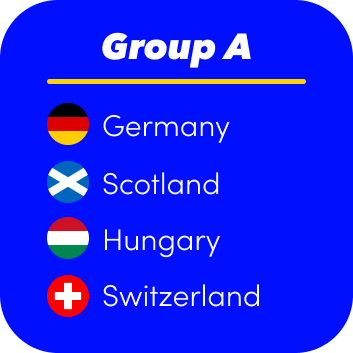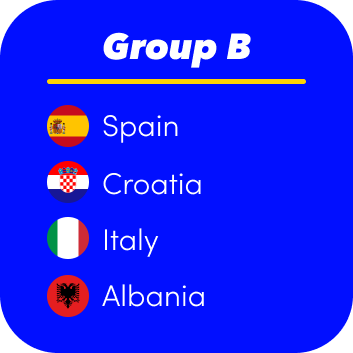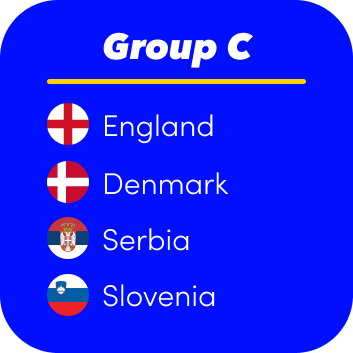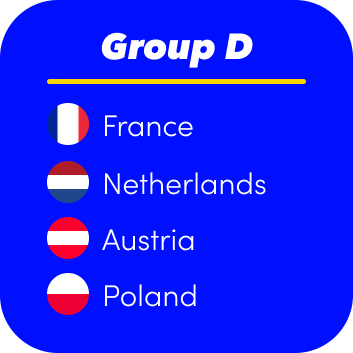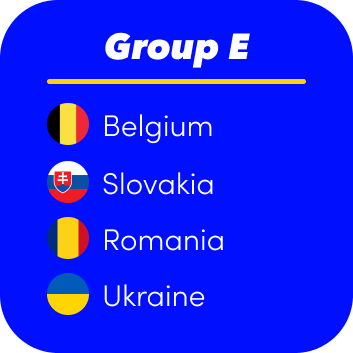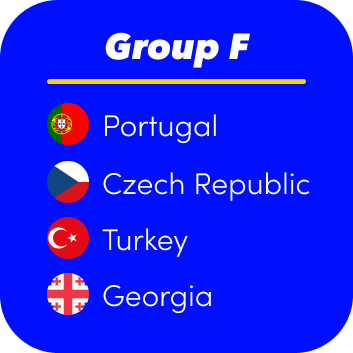The Euro 2024 Stadiums
Out of the ten venues selected to hold matches in the tournament, nine of them were previously used during the 2006 World Cup. Additionally, the Düsseldorf Arena has been included as a new venue. Notably, the Munich Football Arena has been chosen as a host venue for the second consecutive Euro tournament, as it was also one of the 11 stadiums used in the Euro 2020. Here’s the complete list of host venues:
Berlin: Olympiastadion Berlin (70,000)
The Olympiastadion Berlin holds the distinction of being both the oldest and the largest stadium among all the venues chosen for UEFA EURO 2024.
Originally constructed for the 1936 Olympic Games, the stadium has a rich history in German football culture and is currently home to Bundesliga team, Hertha Berlin. Its seating capacity was once an impressive 100,000, and it has been the host of every German Cup final since 1985.
Apart from being a top-tier football stadium, the Olympiastadion Berlin is also a world-renowned music venue and has played a significant role in track and field history. In 2009, Usain Bolt set the current 100m and 200m sprint records during the World Championships in Athletics held at the stadium.
Berlin previously hosted the FIFA World Cup final in 2006, where Italy and France faced off against each other. In 2015, the Olympiastadion Berlin witnessed Barcelona’s victory over Juventus in the UEFA Champions League final.
Cologne: Cologne Stadium (47,000)
Cologne Stadium is one of the smaller venues selected for UEFA EURO 2024, having been reconstructed specifically for the 2006 FIFA World Cup.
Between 2002 and 2004, the stadium underwent extensive renovations and was used to host games at the 2005 FIFA Confederations Cup and the World Cup. Interestingly, the site has a much longer history, with the Sportpark Müngersdorf being the first stadium constructed there in 1923, followed by the Müngersdorfer Stadion in 1975, which hosted two matches during the 1988 UEFA European Championship.
While primarily known as the home stadium of 1. FC Köln, the venue has other unique selling points. Since 2010, it has been the regular venue for Germany’s Women’s Cup final and has also been used for American football, ice hockey, and concerts.
Dortmund: BVB Stadion Dortmund (66,000)
Famous for its iconic “Yellow Wall” stand, the BVB Stadion Dortmund is one of the most renowned football venues in the world and is among the largest arenas selected for Euro. 2024, with a seating capacity of over 60,000 for international matches.
Originally built for the 1974 FIFA World Cup, the stadium has undergone several renovations and expansions over the years. It was even used as a semi-final venue during the 2006 World Cup and has hosted numerous matches for the German national team.
In 2001, the BVB Stadion Dortmund was the stage for the unforgettable UEFA Cup final between Liverpool and Deportivo Alavés. It has also witnessed several high-profile UEFA Champions League games.
Many European football enthusiasts have visited a Bundesliga match in Dortmund on their bucket list. During domestic matches, the stadium’s standing areas increase its capacity to 81,365, with a significant proportion of that number seated in the famous Südtribüne or “Yellow Wall”.
Stuttgart: Stuttgart Arena (54,000)
The Stuttgart Arena, previously known as the Neckarstadion, was originally constructed in 1933, but it has been renovated and upgraded many times since then. It will be able to accommodate over 50,000 spectators for Euro 2024 matches.
The venue has hosted several major football tournaments in the past, including the 1974 and 2006 FIFA World Cups and the 1988 UEFA European Championship. It has also held two European Cup finals: Real Madrid’s 1959 triumph over Reims and PSV Eindhoven’s victory against Benfica in 1988.
After its recent renovation in 2011, the Stuttgart Arena became exclusively a football stadium, although it has also staged concerts featuring prominent acts. VfB Stuttgart, a five-time national champion, is the current resident club playing in the Bundesliga.
Gelsenkirchen: Arena AufSchalke (50,000)
Schalke, seven-time German champions and 1996/97 UEFA Cup winners, play at the Arena AufSchalke, a multi-purpose arena that opened in August 2001. The stadium is located in the 11th-biggest city in Germany, Gelsenkirchen, and has a capacity of 50,000 for Euro 2024, but it can hold 62,000 for domestic matches.
The Arena AufSchalke is equipped with a retractable roof and a slide-out pitch, and it has been used to stage major entertainment events and sports competitions such as the 2010 Ice Hockey World Championships and a biathlon competition at the end of each year. In 2004, Porto won the UEFA Champions League final against Monaco at the Arena AufSchalke, and the stadium was also used for four group stage games at the 2006 FIFA World Cup and Portugal’s quarter-final shoot-out success against England.
Hamburg: Volksparkstadion Hamburg (50,000)
Originally built in 1953, the Volksparkstadion Hamburg underwent significant renovation in 2000, to transform it into a more suitable football stadium. The venue has witnessed three major final tournaments: the 1974 and 2006 FIFA World Cups and the 1988 UEFA European Championship. Its current form has also hosted the 2010 UEFA Europa League final, where Atlético de Madrid defeated Fulham 2-1 in extra time.
In addition to being home to Hamburger SV, the arena hosts boxing events and concerts. Previously, the stadium boasted a clock that counted the number of years the club was in the top German division, but it has been stored away since the team suffered their first-ever relegation to the 2. Bundesliga in 2018.
Leipzig: Leipzig Stadium (42,000)
Leipzig Stadium, home to Bundesliga team RB Leipzig, was opened in 2004 after being reconstructed within the original framework of the former Zentralstadion, the largest stadium in East Germany.
The venue can accommodate more than 40,000 spectators for football matches, and was previously referred to as the Zentralstadion when it hosted games during the 2006 FIFA World Cup, where it held three group stage matches and a round-of-16 tie. The arena’s modern roof is designed to provide excellent acoustics, making it a sought-after venue for concerts.
Munich: Munich Football Arena (67,000)
Constructed by Bayern München and 1860 München, the Munich Football Arena was unveiled in 2005, but it is now fully owned by Bayern. It hosted the opening match of the 2006 FIFA World Cup where Germany faced Costa Rica, as well as three other group stage matches, a round of 16 game, and France’s triumph over Portugal in the semi-final.
The arena has witnessed many notable events since its inauguration, including the 2012 UEFA Champions League final when Chelsea overcame Bayern on penalties. The Munich Football Arena hosted three of Germany’s UEFA EURO 2020 group games and Italy’s 2-1 quarter-final victory over Belgium, and it will also be a venue for UEFA EURO 2024, making it the first stadium to hold matches in two consecutive UEFA European Championships.
Frankfurt: Frankfurt Arena (48,000)
With a rich history dating back to its construction in 1925, the Frankfurt Arena has been a prominent fixture in German sports. Situated near the German Football Association headquarters, the stadium has played host to various events, including ice hockey, American football, cycling, and even a heavyweight boxing match featuring Muhammad Ali and Karl Mildenberger in 1966.
Prior to the 1974 FIFA World Cup, the stadium underwent extensive renovations and hosted the opening ceremony. It also served as a venue for EURO ’88 and the 2006 World Cup. In addition, the Frankfurt Arena was the site of the 2011 FIFA Women’s World Cup final and the 2002 UEFA Women’s Cup final, which saw local favourites 1. FFC Frankfurt emerged victorious. Eintracht Frankfurt has called the arena home for nearly a century.
Dusseldorf: Düsseldorf Arena (47,000)
The Düsseldorf Arena, which serves as the home ground of Fortuna Düsseldorf and last played in the Bundesliga during the 2019/20 season, was constructed between 2002 and 2004 on the former site of the Rheinstadion. The Rheinstadion hosted matches during the 1974 FIFA World Cup and the 1988 UEFA European Championship. The new stadium boasts a retractable roof and is heated, which maintains an internal temperature of up to 15C, even on the coldest days.
Apart from hosting Germany national team games and two Portugal friendlies – a 3-0 victory against Saudi Arabia in 2006 and a 2-1 loss to Greece in 2008, the Düsseldorf Arena has also been the venue for a range of events, such as American football games, concerts, boxing matches, and religious gatherings.

